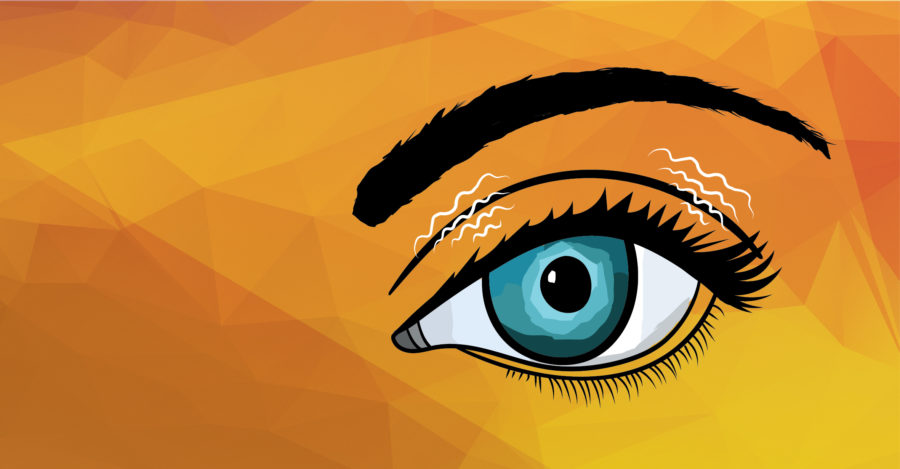Who hasn’t been working on a screen too much lately? After a while, you may notice your eye begin to twitch involuntarily. This condition takes on different forms from benign cases to more complicated conditions that can be tied to complicated disorders.
What causes eye twitching?
Eyelid twitching occurs as a benign condition known as ocular myokymia. It typically happens when you are tired or stressed, have consumed excessive caffeine or alcohol or are experiencing irritation of the eye surface. You may feel your upper eyelid begin to twitch. You may also experience other symptoms like a higher rate of blinking, irritation or dry eyes. According to Mayo Clinic, frequent eyelid twitching is common and may recur over a few hours or days. Corneal abrasion, dry eyes or sensitivity to light can also be cause eye twitching.
The condition known as benign essential blepharospasm starts with frequent blinking of both eyes and can be very serious. Scientists believe it is due to a movement disorder of the muscles around the eye, the Mayo Clinic says. The cause is not certain but can be tied to a problem in the brain known as basal ganglia.
Other conditions of the brain or nervous system may cause eye twitching like Parkinson’s Disease, Bell’s Palsy, dystonia, multiple sclerosis or Tourette syndrome.
When should I be concerned?
When eye twitching becomes more frequent or disrupts your life, it is probably time to see your health care provider. They will do a physical and ask about your symptoms. You will most likely be referred to an ophthalmologist. They may diagnose benign essential blepharospasm or a hemifacial spasm, which is “a nervous system disorder in which the muscles on one side of your face twitch involuntarily. Hemifacial spasm is most often caused by a blood vessel touching a facial nerve. It may also be caused by a facial nerve injury or a tumor, or it may not have a cause,” said the Mayo Clinic.
How do I treat it?
When eye twitching is a mild and benign condition, getting more sleep, reducing stress, wearing sunglasses when in extreme light, using eye drops and decreasing caffeine may be enough to stop or curtail eye twitching. If the condition is more severe, your doctor may recommend botulinum toxin injections into muscles around your eye, according to the American Academy of Ophthalmology (AAO). This usually provides temporary relief.
If injections and other medications do not provide long term relief, surgery may be the only option. For essential blepharospasm, surgeons may either remove the facial muscle causing spasms or the part of the nerve that causes them, the AAO said.
The good news is that for most people, eye twitches are typically not serious and can be eased with some lifestyle changes or restrictions. However, if it becomes more severe or interferes with your life, seeing your eye doctor is the best bet.
* If you are experiencing eye twitching, contact your doctor with any and all questions.
RELATED ARTICLES:
How Air Purifiers Can Help Clean Your Air
We Tried It! Plant-Based Burgers
Spice Up Your Diet With These Foods
8 Amazing Amazon Finds For Your Next Meal Prep

